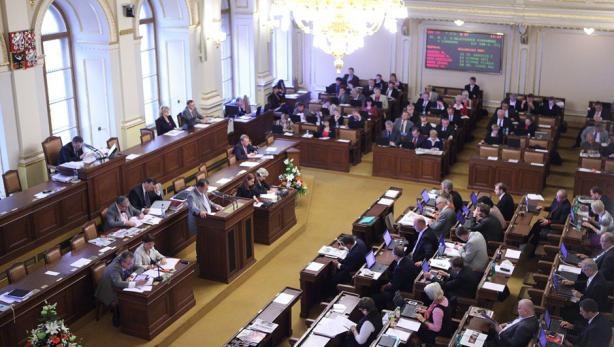NGOs: Czech Republic faces more international embarrassment over unequal access to education

Today the Education Committee of the Czech lower house is reviewing an amendment to Section 16 of the School Act. Experts are warning that there is an ongoing effort to preserve the ambiguity of its formulations regarding the assessment of what forms of support are to be provided to vulnerable children.
The vague formulation makes it possible for the assessors’ personal opinions to have too much influence over the forms of support they recommend; when a counseling facility providing such an assessment is managed by a "practical primary school", its staff have an inherent conflict of interest in recommending whether children need to attend such a school or not. Our need for an unambiguous approach toward recommending and providing support to children with special educational needs has now been increased by pressure from the European Commission, which at the end of September called on the Czech Republic to provide it with evidence, within two months, of the steps it is now undertaking to suppress the extensive discrimination of Romani children in education.
The Czech Professional Society for Inclusive Education (Česká odborná společnost pro inkluzivní vzdělávání – ČOSIV) has issued a statement on the amendment to the effect that it will introduce terminology that is undefined and unknown elsewhere in the legislation on education, namely the phrase "impairment of cognitive abilities". The proposed wording of Section 16a paragraph 5 is as follows:
In Article I, at the current point 7 of Section 16a, paragraph 5, the second sentence shall be replaced by this sentence: When evaluating the possible impairment of a child’s or pupil’s cognitive abilities, the school counseling facility will, in accordance with the first sentence, use procedures and tools designed for the purpose of objectively determining the state of the child or pupil by assessing the child’s or pupil’s abilities in the context of the child’s or pupil’s adaptability, development, and social or cultural environment.
This formulation made it into the amendment last week after negotiations between the legislature’s two subcommittees on education. During that discussion the selectiveness of the current system was defended and support was expressed for the "practical primary schools."
Experts recommend removing this provision from the amendment. Tomáš Habart with the Variants Educational Program at the People in Need NGO said: "The education of children cannot be framed by such an unclear category as ‘impairment of cognitive abilities’. On the contrary, every pupil must receive targeted support according to his or her needs, including the ‘below average’ and ‘slower’ pupils being educated in regular schools today. The proposed amendment would dangerously open the door to such children or pupils being recommended for enrollment into schools designed for pupils with mental disability. This completely contravenes the purpose of the rest of the amendment to the Schools Act, which we otherwise welcome."
Klára Laurenčíková Šimáčková of ČOSIV said: "The proposed provisions of what is otherwise a positively-conceived amendment to the Schools Act in the area of support for children with special educational needs facilitate interpretations that could lead to the repeated assignment of children without mental retardation (IQs higher than 69) into schools and educational programs for pupils with mental disabilities. The Czech Republic has previously been condemned over such procedures by the European Court of Human Rights. There is a high risk that the adoption of this legislation as worded would prompt new legal steps against the Czech Republic and would significantly undermine its position during the infringement proceedings recently initiated by the European Commission."
Jaroslava Zemková, chair of the Czech Psychopedics Association and deputy head of the Special Education Department at the Faculty of Education at Charles University in Prague said: "The text is ambiguous and gives rise to many interpretations. Those using it would be able to interpret each paragraph differently. I am of the opinion that this might cause significant difficulties in practice."
Tomáš Feřtek, an expert consultant to the EDUin NGO, said: "This is not about details and word choice, but about a fundamental disagreement. The supporters of preserving the ‘practical schools’ in their existing form are seeking a formulation in the law that will make it possible for them, in collaboration with certain educational psychology counseling centers, to continue to recommend that even children without mental handicaps be sent to those schools. This has been the greatest shame of our education system for years now."